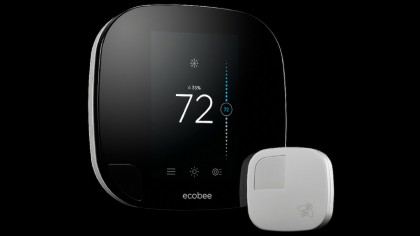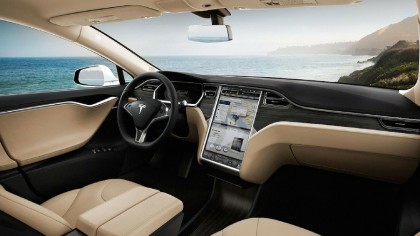Will Google Brillo shake the smart home to its very foundations?
All hail a new Internet of Things platform for the home
What about Apple's HomeKit?
Despite Brillo's appearance, there will be no single dominant ecosystem in the smart home market. Apple beat Google to the prize by unveiling its HomeKit system last year, which like Brillo uses Wi-Fi and Bluetooth Low Energy, and promises close integration with Apple's phones, tablets and Apple Watch.

However, HomeKit isn't the only IoT component that Brillo will have to battle, or integrate with. Qualcomm and Microsoft are backing the AllSeen Alliance's AllJoyn, while Intel, Samsung and Cisco are pushing the IoTivity platform.
What are Brillo's limitations?
The IoT is still in a test phase, and that's not going to finish anytime soon. However, the IoT comes with its own specific risks to privacy. "Exploits and bugs will, no doubt, be part of the show, only this time providing a window into our most private sanctuaries," warns du Preez. "Given Google's track record with its previous smart home product Nest, which was infamous for malfunctions, and its Android operating system, these risks cannot be underestimated."

Is a Google monopoly a good idea?
There's also the little matter of possible domination by one company which, arguably, already holds too much personal information about us. "We also cannot disregard the fact that even working perfectly, this fabric is designed to give Google and the entire app-making ecosystem an even deeper dig into our private lives," says du Preez. "Organisations need to ensure that they are ahead of evolving regulation and take this invitation into our living rooms seriously – they must enforce the most rigorous measures to ensure our data is safe from abuse or theft."
He goes on to say that strong governance, best-practice infrastructure, application security measures, and data-centric approaches to keeping sensitive data private are all imperative to any company looking to enter the IoT fray.
The IoT land-grab
The theory goes that the IoT will only grow quickly if there's a single ecosystem, but the emergence of Google Brillo is only the latest salvo in an ongoing IoT land-grab. Having one language and one OS for the IoT is tempting, and will theoretically make life easier for device manufacturers, app developers and residents of smart homes. Privacy advocates will worry about Google's ever-expanding monopoly, but Brillo's chance of success probably lies with how easy its devices and features are to use with a phone; these days, convenience almost always wins out.
Are you a pro? Subscribe to our newsletter
Sign up to the TechRadar Pro newsletter to get all the top news, opinion, features and guidance your business needs to succeed!
Jamie is a freelance tech, travel and space journalist based in the UK. He’s been writing regularly for Techradar since it was launched in 2008 and also writes regularly for Forbes, The Telegraph, the South China Morning Post, Sky & Telescope and the Sky At Night magazine as well as other Future titles T3, Digital Camera World, All About Space and Space.com. He also edits two of his own websites, TravGear.com and WhenIsTheNextEclipse.com that reflect his obsession with travel gear and solar eclipse travel. He is the author of A Stargazing Program For Beginners (Springer, 2015),
